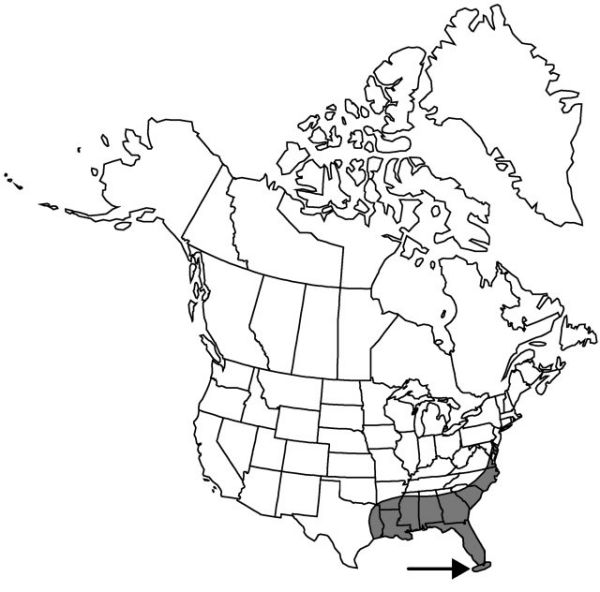Smilax walteri
Fl. Amer. Sept. 1: 249. 1814.
Vines; rhizomes slender, running. Stems perennial, climbing to clambering, branching, slender, 2–6 m, woody, glabrous; prickles scattered, subulate. Leaves deciduous to semievergreen; petiole 0.5–1 cm; blade abaxially green, drying to lightly orange-tinted brown, ovate-oblong, to ovate-lanceolate, with 3 prominent veins, thin, 6–10 × 3–7 cm, glabrous or minutely pubescent abaxially, not glaucous, base rounded, subcordate, or, sometimes, cuneate at petiole insertion, margins entire, apex acute, mucronate. Umbels few to many, axillary to leaves, few-flowered, loose, hemispherical; peduncle 0.5–2 cm, generally shorter than petiole of subtending leaf. Flowers: perianth brownish yellow; tepals 3–6 mm; ovule 1 per locule; pedicel 0.5–1 cm. Berries bright red to orange, globose, 7–9 mm, shining.
Phenology: Flowering Apr–Jun.
Habitat: Wet thickets, low pinelands, swamps, boggy areas
Elevation: 0–350 m
Distribution

Ala., Ark., Del., Fla., Ga., La., Md., Miss., N.C., S.C., Tex., Va.
Discussion
The brightly colored fruits make Smilax walteri conspicuous in the winter.
Selected References
None.